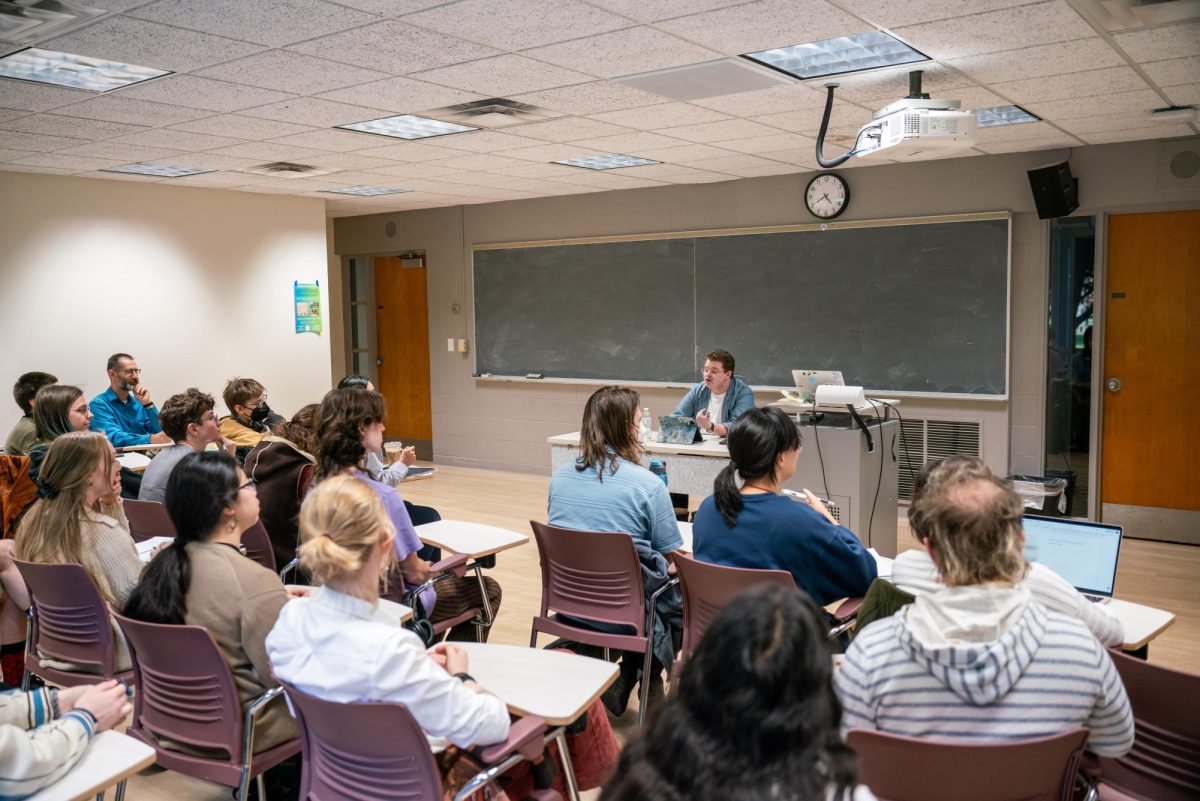Council Delays REC Discussion Until Late December
November 20, 2015
Oberlin’s City Council decided to table the issue of how to allocate $800,000 in Renewable Energy Credits until late December following weeks of tense debate. At Council’s weekly meeting on Monday, City Council President Scott Broadwell suggested that the group reconvene on the issue during a work session on Dec. 21.
Council members are debating three options for how to spend the RECs. The first option would return 85 percent of the sales to the Sustainable Reserve Fund and 15 percent to ratepayers. Conversely, Council could decide to give 85 percent of the sales to ratepayers and the remainder to the Sustainable Reserve Fund. The third option puts the onus on ratepayers to decide whether to give the money to the fund or keep it.
Households will likely receive $850 in the form of $7-per-month payouts if 85 percent of the funds are returned to them. If Council instead decides to reinvest in the Sustainable Reserve Fund, the money could be used to weatherize homes and make them more energyefficient — an improvement that some believe will save ratepayers the most money in the long term.
The Sustainable Reserve Fund provides grants and leverages other funding sources for community-based, utility-related, environmentally friendly initiatives that use or promote green energy in some capacity. In the past, grants from the Fund have been used to insulate low-income homes, perform a local wind study, assist in developing a local biodiesel fuel station and support other green energy and energy efficiency programs.
Representatives from the Public Utility Commission — a five-person City Council advisory body that addresses concerns about public and private maintenance, operation and improvement of the public utilities — have voiced support for returning 85 percent of the sales to the Sustainable Reserve Fund.
In a letter to the editor, PUC representative and Oberlin resident Tony Mealy cautioned against moving 85 percent of the REC sales to the Sustainable Reserve Fund (“RECs Best Used by Returning Utility to Customers,” The Oberlin Review, Oct. 30).
“There will be approximately $2.5 million in proceeds to the electric utility by the end of 2016,” Mealy wrote. “There will also be over $310,000 in the underutilized Sustainable Reserve Fund, which will continue to add $20,000 each year from Oberlin College. Based on these figures and the recommendation of the OMLPS director, the Public Utility Commission chairman and this member, 85 percent or $2.125 million should be returned to the electric utility customers.”
Still, many residents are hesitant about pursuing this option because it would allocate 25 percent of the REC money, or $530,000, to the College. The potential rebate to the College is a sensitive issue for some community members because of the existing tension between the two entities. The College’s nonprofit status exempts it from paying property taxes despite it owning vast amounts of land in town.
How the Council will ultimately fall on the issue largely depends on its interpretation of Ordinance No. 07-39 AC CMS. The legislation potentially mandates that REC sales go back to the Sustainable Reserve Fund.
“My reading of that ordinance indicates that all proceeds from REC sales be deposited in the Sustainable Reserve Fund,” said Bryan Burgess, City Council member. He added that if the sales do not go to the Sustainable Reserve Fund, the decision should be made by ordinance, not by motion.
This term’s incumbents might not make a decision until next term’s Council takes hold. While the conversation has been delayed until late December, some council members said that meeting could prove irrelevant if newly elected members disagree with the decision.
“We may wait until the first of [2016] before we actually act on the RECs,” said Ronnie Rimbert, City Council member. “Why are we going to have a work session if we’re not going to have the new Council people involved in that work session? That seems a little odd to me, because they’re going to have be involved at some point.”
Broadwell said that the suggestion to hold a working session in December was intended to give the Council more time to discuss the issue.
The proposal to meet next month was passed in a 6 to 1 decision, with Council member Kristin Peterson dissenting. Peterson did not run for reelection this term.
“I don’t know what we’re going to do, but this Council can vote, and if the new Council comes in and they don’t agree, there may be another vote,” Peterson said.
Broadwell added that he did not have a firm stance on when Council should make its final decision.
“I’m not advocating for us to deal with it on the 21st, I’m not advocating for us to deal with it in 2016,” Broadwell said. “I’m just saying we have some options here.”
Some Council members cautioned that residents’ utility bills will increase next year, and that the hike should be taken into consideration when making a decision about RECs.
Outgoing City Manager Eric Norenberg said that the average resident cost increase is projected to be 13.7 percent from 2015 to 2016, and that the average retail electric grid — all customer classifications — is expected to be 15.5 percent.
Rimbert added that this information is vital when it comes to public consideration of how to handle the REC money.
“I think what’s important with this whole conversation is the fact that it’s out on the table that we’re going to see a 20 percent rate hike,” Rimbert said. “Before, the public didn’t know that — now it’s out there.”


















